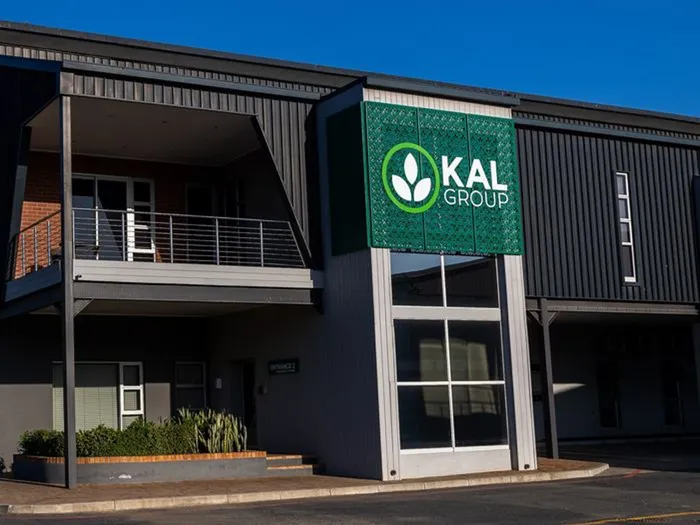KAL Group profit dips slightly, but management is optimistic about the second half
Retail

The KAL Group is an agriculture and lifestyle company specialising in the trade and retail of agriculture, fuel and related markets in southern Africa. Its management is optimistic about trading prospects in the second half of is financial year to end-September 2025.
Image: supplied
KAL Group, the JSE-listed agri, fuel and convenience speciality retailer reported a steady performance in the six months to March 31, with earnings only marginally lower, and it has predicted a stronger performance in the second half.
It generated R557.1 million in earnings before interest, tax, depreciation, and amortisation (EBITDA), a decline of 2.1% over the first half of last year, while R440.6m in pre-tax profit (PBT) was lower by 3.9%. However, the interim dividend was raised to 56 cents a share from 54 cents in 2024 – reflecting business confidence and a commitment to shareholder returns.
“KAL Group has grown tenfold over the past 14 years. To put it in perspective – fourteen years ago, we made just 10% of what we’ve reported this half. That kind of growth, even in a flat period, shows our business remains solid,” Sean Walsh, CEO of KAL Group, said Thursday.
Debt was reduced by R243.5m in the first half, and the debt-to-equity ratio declined to 48.4% from 56.5%. The balance sheet remained robust, with healthy cash flow, strong working capital, and debt levels at their lowest in a decade.
“Over the past two years, we’ve deliberately prioritised debt stabilisation and cash preservation, including refraining from major expansion to bed down the R1 billion PEG Retail Holdings acquisition,” he said.
He said they were now well positioned to reach their target of R1.5 billion PBT by 2030, and a debt-to-equity ratio of 40%, delivering a return on equity of 15%.
“We will achieve this through footprint expansion, market share growth, and improved efficiencies, with the team expecting significant inroads already made by year-end,” he said.
Revenue was impacted by a 12.4% decline in fuel prices — fuel comprises 57% of the group’s revenue, but this had no material effect on profitability due to the regulated nature of fuel pricing.
Walsh said a R5 change in the fuel price per litre can shift revenue by as much as R250m in a month, yet it has little bearing on gross profit apart from the one-off stock price adjustment. In fact, group R1.7bn gross profit increased by 0.9% (and by 1.5% excluding fuel price change gains).
The Agrimark business reported a 2.4% year-on-year increase in PBT. The segment felt the impact of slow growth in the general retail sector and a slowdown in building activity — with cement volumes down 0.7%. However the lower interest rate environment was seeing farmers beginning to reinvest and spend capital after several tough years.
Strong sales of netting infrastructure at Agrimark signalled a return of capital investment to farms, and strong fertiliser sales signaled an execution of strategy in to grow market share in the Eastern Cape.
The fuel and convenience business, TFC Operations (TFC), was rebranded to PEG Retail Operations (PEG). PEG was affected by lower fuel prices, subdued volumes, and the shift in the Easter holiday trading period from March last year to April this year. PBT declined by 4.8%.
Five new fuel sites and three quick service restaurants were in the pipeline for the second half. Walsh said the agricultural sector had experienced a more favourable year and the production outlook was positive.
Commenting on the potential impact of recently imposed US tariffs on South African exports, Walsh said farm-level profitability might be affected by downward pressure on export prices, but KAL’s exposure was expected to be limited.
“The impact will likely be confined to select categories on a micro level — stone fruit and wine in the Western Cape, as well as table grapes, dried fruit, and citrus in both the Western and Northern Cape,” he said.
BUSINESS REPORT